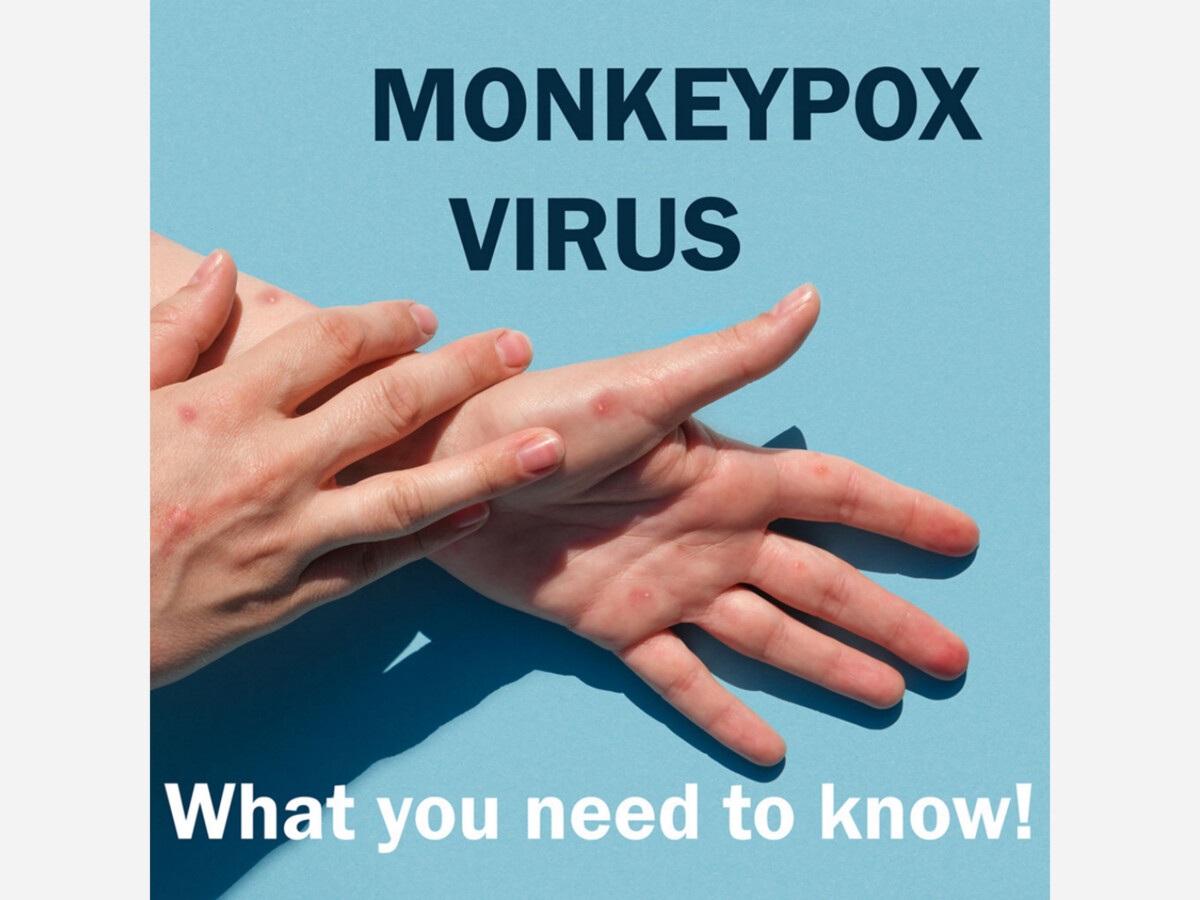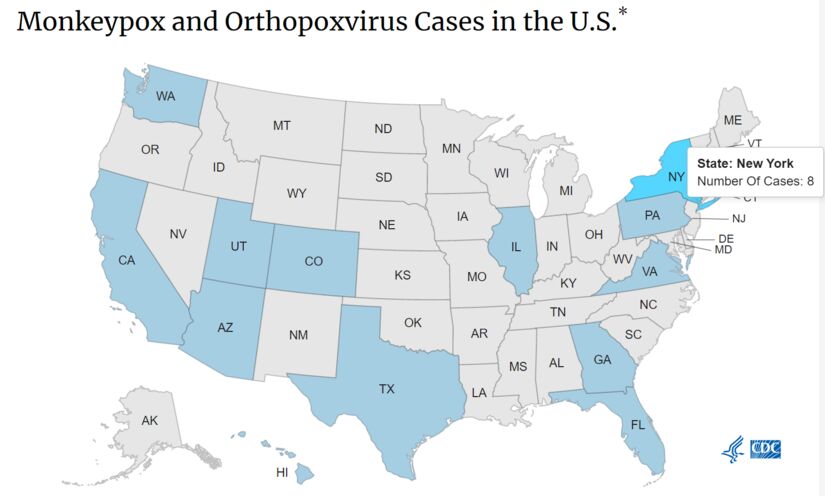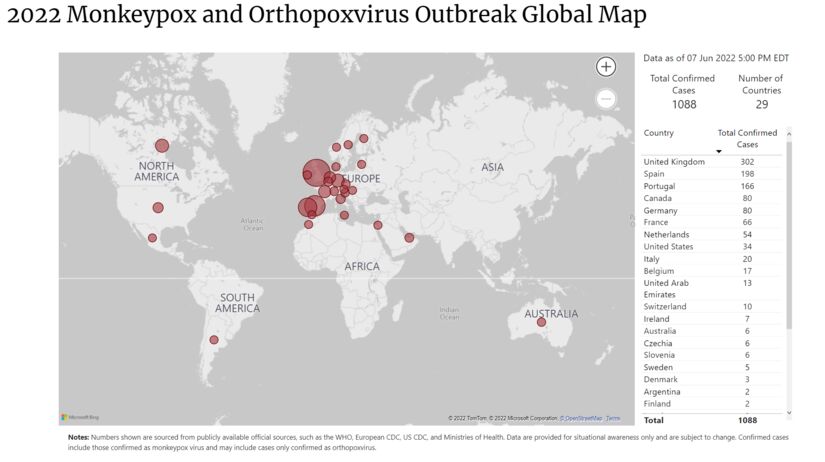Image

The CDC is working with state and local health officials to identify people who may have been in contact with individuals who have tested positive for monkeypox, so they can monitor their health.
It is not clear how the people were exposed to monkeypox, but early data suggest that men who have had sexual contact with other men make up a high number of cases.
However, anyone who has had close contact with someone who has monkeypox is at high risk.
Anyone with a rash that looks like monkeypox, below, should talk to their healthcare provider, even if they don’t think they had contact with someone who has monkeypox.

In humans, the symptoms of monkeypox are similar to but milder than the symptoms of smallpox. Monkeypox begins with fever, headache, muscle aches, and exhaustion. The main difference between the symptoms of monkeypox and smallpox is that monkeypox causes lymph nodes to swell while smallpox does not.
The incubation period (time from infection to symptoms) for monkeypox is 7-14 days but can range from 5-21 days.
Within 1 to 3 days (sometimes longer) after the appearance of fever, the patient develops a rash, often beginning on the face and then spreading to other parts of the body.
Lesions then progress through the following stages before falling off:
*Pitted scars and/or areas of lighter or darker skin may remain after scabs have fallen off. Once all scabs have fallen off a person is no longer contagious.
The illness typically lasts for 2-4 weeks. In Africa, monkeypox has been shown to cause death in as many as 1 in 10 persons who contract the disease.

Total: 35 cases

Globally, 1,088 cases of monkeypox have been confirmed by the CDC in 29 different countries. The United Kingdom has the most confirmed cases with 302 cases of monkeypox, followed by Spain, with 198 cases, then Portugal, with 166 cases.
* DISCLAIMER: The information, including but not limited to, text, graphics, images, and other material contained in this article, is for informational purposes only. No material on this site is intended to be a substitute for professional medical advice, diagnosis, or treatment. Always seek the advice of your physician or other qualified healthcare providers with any questions you may have regarding a medical condition or treatment, and before undertaking a new health care regimen, and never disregard professional medical advice or delay in seeking it because of something you have read in this article.
Follow Morristown Minute on Facebook, Instagram, and Twitter for more state and local updates.